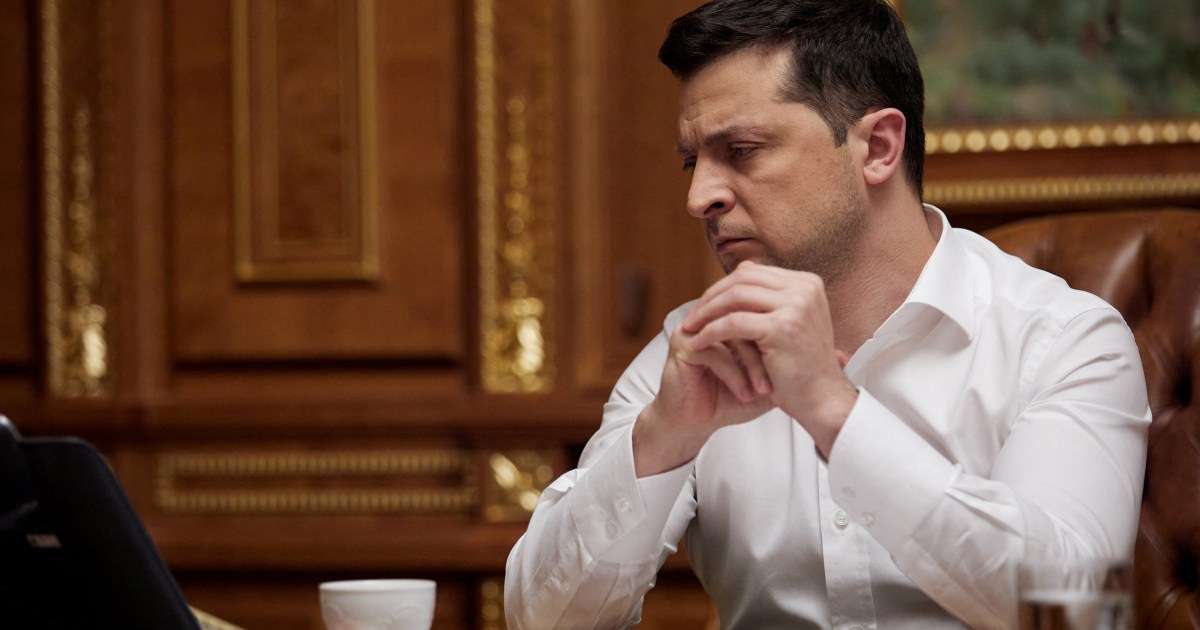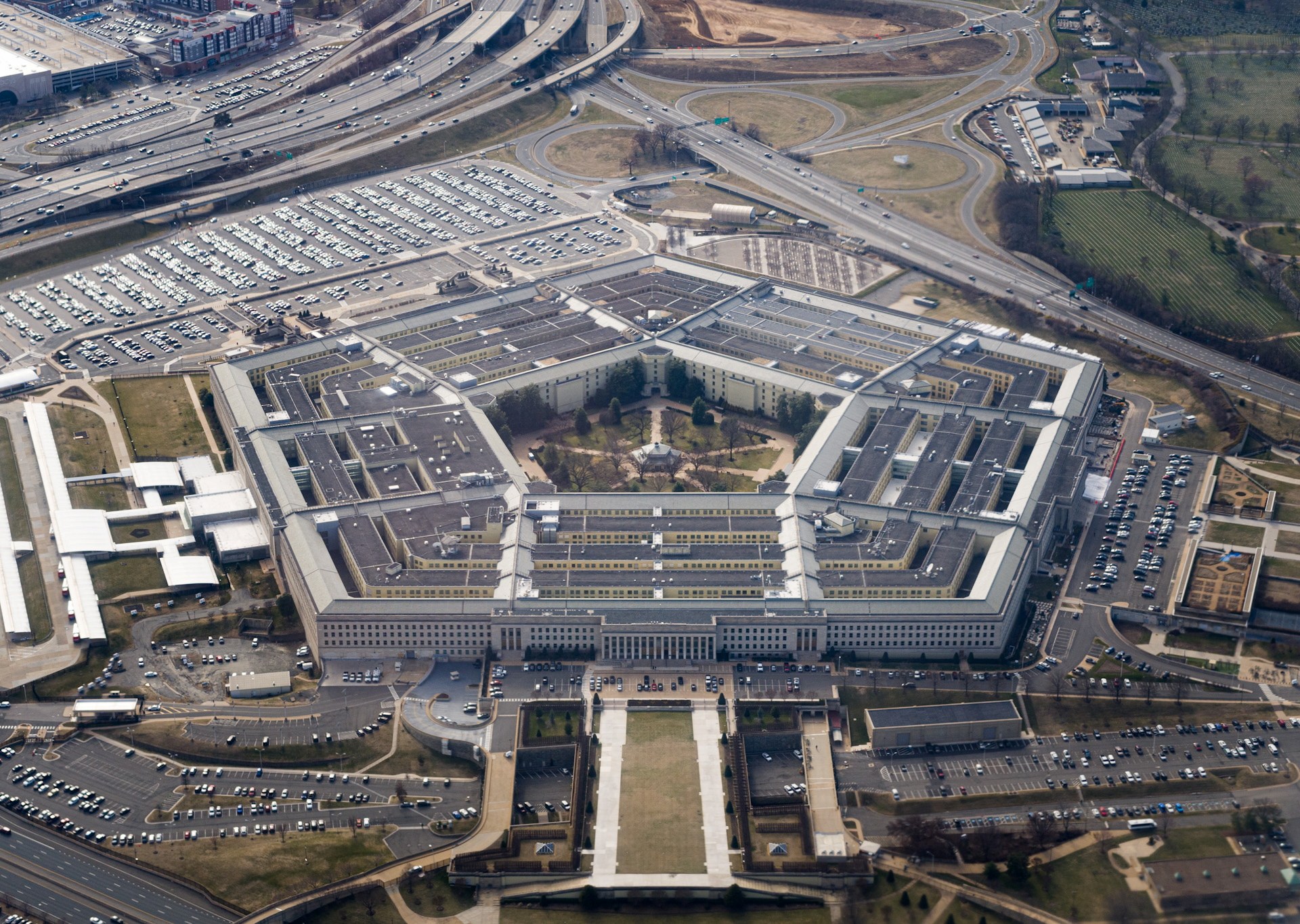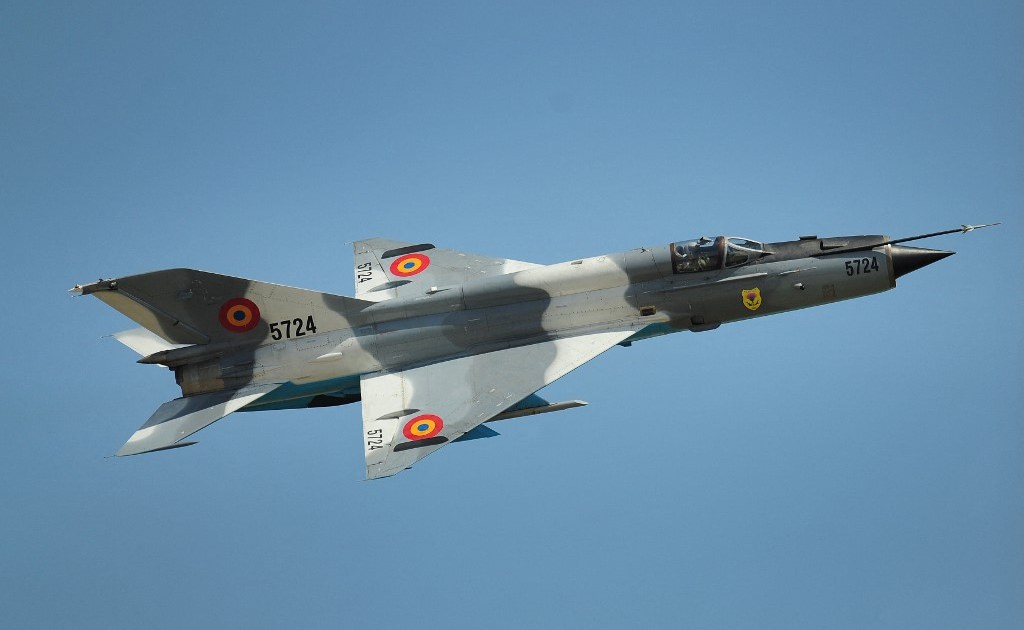What should Ukraine do now? | Ukraine-Russia crisis
In late January, as Western countries escalated their rhetoric about an “imminent invasion” by Russia, Ukrainian President Volodymyr Zelenskyy questioned this narrative at a press conference with foreign reporters. “I’m the president of Ukraine and I’m based here and I think I know the details better here,” he said following his phone call with US President Joe Biden.
I felt proud and I think many other Ukrainians did so, too. In the 2019 presidential elections, 73 percent of voters supported Zelenskyy, a comedian with no political experience, in an act of total rejection of the dinosaur of Ukrainian oligarchic politics, Petro Poroshenko, who ran on an aggressive nationalist platform.
Despite his campaign promises to unite the nation and bring radical change to the country, Zelenskyy has largely veered away from this path. So when he stood up to Western pressure, it was a rare moment of defiance in which he appeared close to the fictional teacher-turned-president Vasyl Holoborodko, who he portrayed in the popular TV show Servant of the People.
In the past two weeks, Zelenskyy has continued to call for calm and reassured Ukrainian citizens that his government has the situation under control. He announced a day of national unity on February 16 and called on MPs and oligarchs who left the country to come back and show their support for the Ukrainian nation.
But faced with warmongering narratives and panic, which are damaging the Ukrainian economy, the Ukrainian president has to go beyond mustering independent rhetoric. He needs to undertake proactive foreign policy in the interests of all Ukrainian citizens that would take seriously the critical issues behind the escalation. Ignoring them or unequivocally rejecting them on dubious grounds could deprive Ukraine of a say in its own future as decisions are taken on its behalf by foreign powers.
So far, Ukrainian diplomatic initiatives have been rather short-sighted. It may seem smart to exploit the scare of the “imminent invasion” to get more weapons from the West or campaign for preventive sanctions against Russia. However, the weapons that are currently supplied to Ukraine would not save it in case of an all-out attack by Russia. Similarly, the proposed sanctions by the West are unlikely to be consolidated or hurt Russia enough.
The “alliance” with the UK and Poland announced on February 1 is more of a publicity stunt by British Prime Minister Boris Johnson, who is in deep domestic troubles, than an effective pact that could guarantee protection for Ukraine. Not only does it not contain any viable commitments from London and Warsaw, but it is also a doubtful achievement for Ukraine to join the toxic company of some of the most right-wing governments in Europe.
The prospects of a NATO membership also seem rather dim, despite the fact that Western powers have rejected Russian demands to make it official. At this time, the door seems to be closed, and continuing to knock on it may not be in the best interest of the nation. As Zelenskyy himself once said about NATO membership, “I never go visiting unless I am invited. I don’t want to feel inferior, a second-class person.”
One of the apparent Russian achievements of the past year of escalation is that the issue of Ukraine’s NATO membership has turned even more toxic and divisive. There is now even more doubt whether accepting Ukraine would not make all other NATO countries less secure as a result. It is also increasingly clear that a Putin successor, however progressive or democratic they may be, would still see Ukraine’s NATO membership as a threat.
This leaves us with three basic scenarios in the long term. The first one is a humiliating defeat for Russia and its loss of great power status in Eurasia. This is a hope held by the Ukrainian nationalist movement. Its members see Ukraine not only struggling for its sovereignty but also being part of dismantling the Russian Empire – a process that has been going on for over a century. They hope to see Chechnya-style conflicts erupt across the Russian Federation.
The problem is that Ukrainian nationalists do not care what most Ukrainians would think about sacrificing themselves in a long-term crusade to turn Russia into a patchwork of small states. They also do not take into account whether the rest of humanity would really like to witness state collapse and civil war on the territory of a nuclear power.
The second scenario is an international agreement about Ukrainian neutrality or the so-called “Finlandisation” of Ukraine, which refers to Finland’s historic decision to associate with Europe, but avoid hostility towards Russia by not joining NATO.
The problem with this proposal is that it is unenforceable given domestic opposition to it, and there is little international faith that the Kremlin would commit to Ukraine’s neutral but sovereign status. Ukraine needs stronger guarantees than a treaty that can be broken by Russia at any moment.
This leaves us with the third scenario, which would entail constructing an overarching security structure for the whole of Europe that would include both Ukraine and Russia. This could start with regular regional security consultations, building new norms of behaviour between major powers, their allies, and non-aligned states, and developing detailed multilateral security guarantees re-affirmed by extensive military restraint and transparency confidence-building measures.
The details of such a structure have already been laid out in a comprehensive proposal recently put forward by a large group of non-governmental experts from the US, EU, Russia, and five countries squeezed between Russia and NATO, including Ukraine. Such an arrangement could establish common security and economic space from Lisbon (or even Vancouver) to Vladivostok, as some hoped at the end of the Cold War. It is in Ukraine’s vital interest to be among the initiators and active participants of this process and to shape its outcomes.
Restoring Ukraine’s non-alignment status would be a necessary first step, which would require amending the Ukrainian constitution. In 2019, amid Poroshenko’s desperate attempts to get re-elected, the goal of “Euroatlantic integration” was inscribed into the constitution. While this constitutional change was legal, it was hardly legitimate, as Ukrainians were rather split on NATO at that time and the parties that pushed for it were polling dismally in terms of public support.
No less importantly, Ukraine also needs a more constructive approach towards the Minsk accords whose implementation has been stagnating for seven years, although they follow the basic logic of all the major peace settlements of the last decades. This would require direct negotiations with the representatives of the separatist regions in the Donbas, which would be legitimated in elections.
It would also require that Kyiv changes its “first border, then elections” approach, in which it demands regaining full control over the Ukrainian borders before recognising any elections in the breakaway regions. Both Russia and the Russian-backed separatists are rejecting this sequence of events because they think it would allow Ukraine to re-impose its authority by force, which would lead to discrimination, repression, and expulsion of hundreds of thousands of Ukrainian citizens perceived to be “collaborationists”.
In a recent interview, Oleksiy Danilov, the secretary of Ukraine’s National Security and Defense Council, claimed that the accords are not possible to implement because Ukrainian society may not accept them, and Russia may exploit a “very difficult internal situation” that may lead to the “country’s destruction”.
Indeed, thanks to the deliberate delay in implementing the accords, they are not as popular today as they were in 2015. Nevertheless, the majority of Ukrainians still believe that compromises will have to be made to achieve peace.
One of the main reasons for the lack of progress with the Minsk accords is not only fear among Ukrainian politicians of nationalist violence but also the change in electoral geography that would take place once the millions of Ukrainians isolated in breakaway regions rejoin the national electorate. They are unlikely to support either Zelenskyy or the nationalist opposition.
There are also fears that according a special status for these regions would give them veto power at the executive level and make Ukraine ungovernable. However, that is not the case. The only leverage the re-integrated areas would get is via the threat of an organised secession from Ukraine.
One of the solutions could be extending the special status to the whole territory of the Donbas rather than just the territories under separatist control, which was suggested by Enrique Menendez, a Ukrainian civic and humanitarian activist from Donetsk. This may look like an unjustified concession to Russia and may provoke outrage among some Ukrainians. However, such a move would actually dilute pro-Russian sentiments, as people loyal to Ukraine would also be part of voting and decision-making in the local administration and would make secession much more difficult.
The Ukrainian political leadership should stop allowing to be blackmailed with threats of a nationalist revolt. After all, these threats are not about the Minsk accords per se but about any compromise with Russia that would cross the numerous red lines of the nationalist segments of Ukraine’s political elite and civil society.
Implementing the Minsk accords means the capitulation not of Ukraine but of an unfeasible nation-building project in Ukraine driven by a vocal nationalist minority. It is a project that envisions the exclusion of Ukrainian citizens who would like to retain their native Russian language in the public sphere, embrace the achievements and history of Soviet Ukraine, and prefer friendly relations with Russia.
Implementing the Minsk accords means recognition and institutional protection of the political diversity among Ukrainians, many of whom do not agree with the “civilisational choices” made for them by that active minority since 2014.
The Ukrainian leadership should ask for support from its Western allies to work towards a national consensus on the Minsk accords. A consolidated Western position would discourage the nationalist segment of civil society, which is dependent on the West for funding, from supporting any disruptive action against such an initiative.
Kyiv would also need to change the dominant discourse about the war in Donbas and start revising discriminatory and anti-democratic policies, particularly those related to language and history. It should also call for international aid, loans, and investments to help re-build and reintegrate the Donbas region, boost economic development, and improve social provision across the country.
Whether Zelenskyy would be able to lead such efforts to resolve the current crisis is under question. Having no real party, no popular movement, and not even a coherent team behind him, he has failed to reverse the nationalist radicalisation trends of Poroshenko’s government and even escalated some of them.
He has gotten into the same trap his predecessor did of inflated expectations for his performance as a newcomer on the political scene and made the same mistakes of succumbing to pressures from oligarchic clans, the nationalist segment of civil society, and the West. He has tried to build a typical post-Soviet “power vertical” that erodes legal checks and balances and has pretended that attacks on the opposition are part of the long-awaited political reforms.
There is still time for Zelenskyy to change his strategy. What would strengthen his power is reaching sustainable peace and solving the country’s most pressing political problems that only divert scarce resources from socioeconomic development. He can still go back to his campaign promises for truly inclusive national unity and the image he carefully constructed around his fictional character that got him elected with such overwhelming support.
The views expressed in this article are the author’s own and do not necessarily reflect Al Jazeera’s editorial stance.





Pingback: cannabis for sale in australia today
Pingback: 1up mushroom chocolate bars
Pingback: kinetisch zand
Pingback: Buy Weed Kief Online
Pingback: white berry strain
Pingback: non gamstop casinos